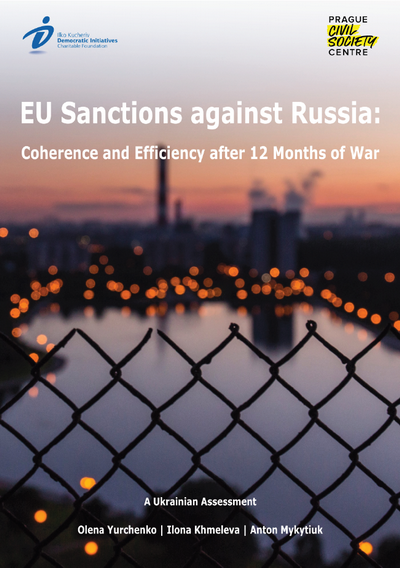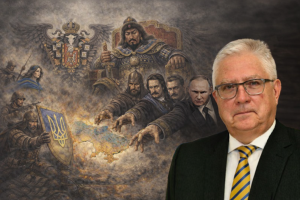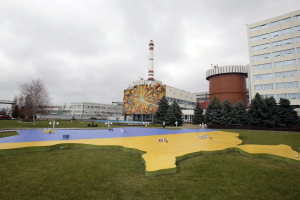EU Sanctions against Russia
 The current sanctions regime imposed by the EU is unprecedented in scale and effects on the Russian aggressor. The deteriorating results of those restrictions on the military capabilities of the Russian Federation are undeniable. However, the existing sanction regime is not entirely flawless.
The current sanctions regime imposed by the EU is unprecedented in scale and effects on the Russian aggressor. The deteriorating results of those restrictions on the military capabilities of the Russian Federation are undeniable. However, the existing sanction regime is not entirely flawless.
The complexities caused by the EU institutional approach, the scope of restrictions and extent of the economic relations to be severed, and the political implications of the international security crisis have made it hard to achieve the main goal of sanctions – forcing Russia to stop the war.
This paper, prepared by Ukrainian analysts, identifies several issues, which must be improved to make the sanction regime more efficient:
• Non-exterritoriality of the sanctions regime and continued operations of Western companies in Russia through their local subsidiaries.
• Loopholes caused by discrepancies between the different sanctions regimes (i.e., by the EU, US, as well as Japan, UK, and Canada).
• The uneven regime of export control for dual-use goods and military use of commercial products.
• Absence of restrictions towards many Russian entities belonging to military enterprises and the defense industry.
To tackle these problems, the Ukrainian authors propose the following actions toward key sectors of the Russian economy:
• Oil, gas, and oil processing industry: reconsider the price ceiling for Russian crude oil and suggest the escrow account model; change the legal approach towards foreign companies operating in Russia through their subsidiaries and prohibit companies from the EU to have commercial operations with the Russian oil enterprises.
• Manufacturing industry: tighten the liability for sanctions violation and introduce secondary sanctions against the intermediaries engaged in evasion schemes; impose sanctions against the biggest Russian enterprises constituting the vital source of revenue for the state budget; coordinate the imposition and implementation of the sanctions with non-EU partner countries in terms of substance, procedure and expected effects; and ban the European companies from any cooperation with the Russian entities if they are related or belong to the defense industry and/or sanctioned by Ukraine or one of the partners countries.
• Imports of technology and military production: enforce the export control up to the presumption of denial; expand the list of dual-use products in cooperation with partners; introduce the screening of potential intermediaries and shell companies applying for the export of dual-use products to Russia; impose sanctions on the military or military-civilian enterprises operating under the auspices of Rosteh, Roscosmos, Rosatom, and Almaz Antey; impose sanctions on Rosatom, as proposed by the European Parliament resolution of 2 February 20231.
• Banking sector: disconnect from the SWIFT system and other international transactional systems all Russian banks that provide services to state-owned companies, state and parastatal organizations, top Russian civil and military officials, including members of the Russian parliament; prohibit any cooperation between European banking service companies and Russian banks; withhold the export turnover of Russian companies in critical sectors (i.e., oil and gas) on escrow accounts.








